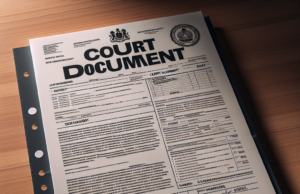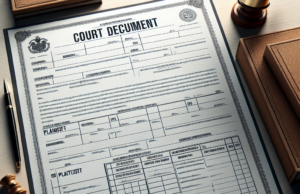Mediation At A Glance

Mediation is an alternative to traditional litigation that can be used to resolve conflicts and disputes. This process involves using a trained mediator to facilitate communication and negotiation between parties. In this article, we will explore mediation and provide an overview of how it works.
What is Mediation?
Mediation is a process in which a neutral third party, known as a mediator, helps to facilitate communication and negotiation between two or more parties. The process is designed to encourage open communication and collaboration, with the goal of reaching a mutually agreeable solution.
Benefits of Mediation
There are several benefits to using mediation as an alternative to traditional litigation, including:
1. Cost-effective: Mediation can be much less expensive than going to court, as it usually takes less time and involves fewer professionals.
2. Confidential: Mediation is a private process, which means that the details of the case are not made public.
3. Informal: Mediation is a more informal process than traditional litigation. This can make it less intimidating and more comfortable for parties involved.
4. Flexible: Mediation is a flexible process that can be tailored to meet the needs of each individual case.
The Mediation Process
The mediation process typically begins with an initial meeting between the mediator and the parties involved. This meeting may be held in person or virtually and provides an opportunity for the mediator to explain the process and learn more about the issues involved.
During the mediation session, the mediator will meet with each party separately and then together to discuss the issues at hand. The mediator will then work with the parties to identify areas of agreement and facilitate negotiation to resolve any areas of dispute.
Once an agreement is reached, the mediator will draft a written agreement outlining the terms of the settlement. This agreement is then signed by all parties involved.
Conclusion
Mediation is a highly effective alternative to traditional litigation that can help parties involved to resolve conflicts and disputes in a more cost-effective and collaborative manner. The process is flexible, informal, and confidential, which makes it a popular choice for many people facing legal disputes. With the help of an experienced and trained mediator, parties can reach mutually agreeable solutions that help them move forward with their lives.
The role of a mediator in the filing process of divorce can be instrumental in assisting all parties involved in the achievement of a fair, balanced, and civilized settlement.
Oftentimes, the vast emotions and personal history involved in the process of the divorce, as well as the difficulty of establishing objectivity are overwhelming.
In such cases, the appointment of a mediator is an extremely viable option. Rather than a potentially chaotic, emotionally-charged hearing, mediation allows for an objective discourse in the process of finalizing a divorce.
With the potential inclusion of children, assets, and property, the divorce process can be one that is emotionally-charged. Although a mediator is not a replacement of an attorney, one can be a valuable asset for a productive and civil rectification of a divorce settlement.
Many consider mediators to allow for a more personal touch in the scope of an assumed rigidity of a judicial hearing. For those interested in becoming a mediator, there are classes available for the certification of mediators.




 In the case there is a legal dispute of any kind in the state of Arizona, the parties involved may decide to enter mediation as a method to bring a resolution to the matter before entering the formal process of litigation.
In the case there is a legal dispute of any kind in the state of Arizona, the parties involved may decide to enter mediation as a method to bring a resolution to the matter before entering the formal process of litigation.










